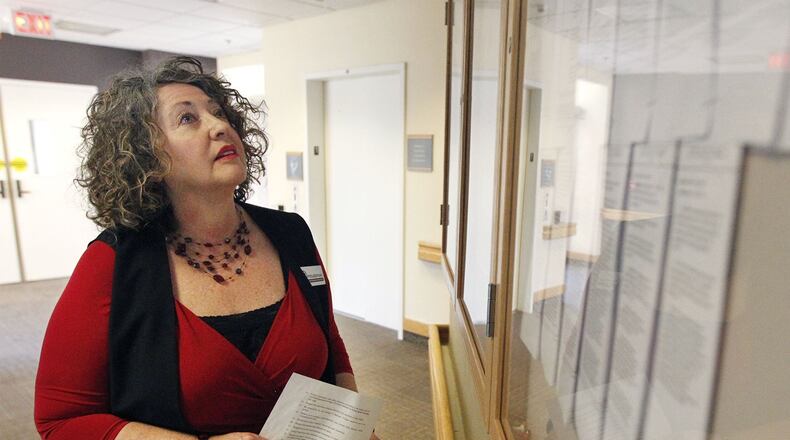Ohio Gov. Mike DeWine’s latest budget increased funding to local Long Term Care Ombudsman offices, which will pay for full time coordinators for volunteers.
MORE: Local family caregivers struggle with care challenges
“Visitors help reduce residents’ feelings of isolation,” said Beverley Laubert, the State Long-Term Care Ombudsman. “Our volunteers give residents a voice and honor their lives and experiences. They also help ensure facility staff do the same.”
Ohio’s 2020-2021 operating budget included additional funds to expand the Ombudsman’s statewide volunteer corps and increase the number and frequency of visits to residents. These funds helped the Dayton region office go back to having a full-time person dedicated to recruiting, training, and retaining volunteers.
Volunteers observe conditions in facilities, talk to residents and family members about issues with care and services, and help them understand their rights as consumers. They can work with facility staff to resolve simple problems, and support ombudsman staff as they investigate more complicated complaints.
“We don’t regulate and we don’t enforce but we do feel empowered,” said Connie Wade, a volunteer ombudsman.
Beverly Baltes, volunteer coordinator in Dayton, said some people also attend the volunteer training so they know the rules of care and can be educated advocates for their family when they visit their assisted living or nursing home.
MORE: Wright State begins offering 3-year track to become a doctor
Volunteer Ombudsman representatives receive extensive training to serve as advocates for long-term care consumers. Topics include problem-solving, interviewing, the rules and laws of long-term care, and how to work with providers to honor consumers’ choices.
For assistance with your or a loved one’s care, or to learn more about volunteering, contact the Office of the State Long-Term Care Ombudsman at 1-800-282-1206 or visit www.ombudsman.ohio.gov to find contact information for the Regional Long-Term Care Ombudsman Program serving your community.
About the Author
